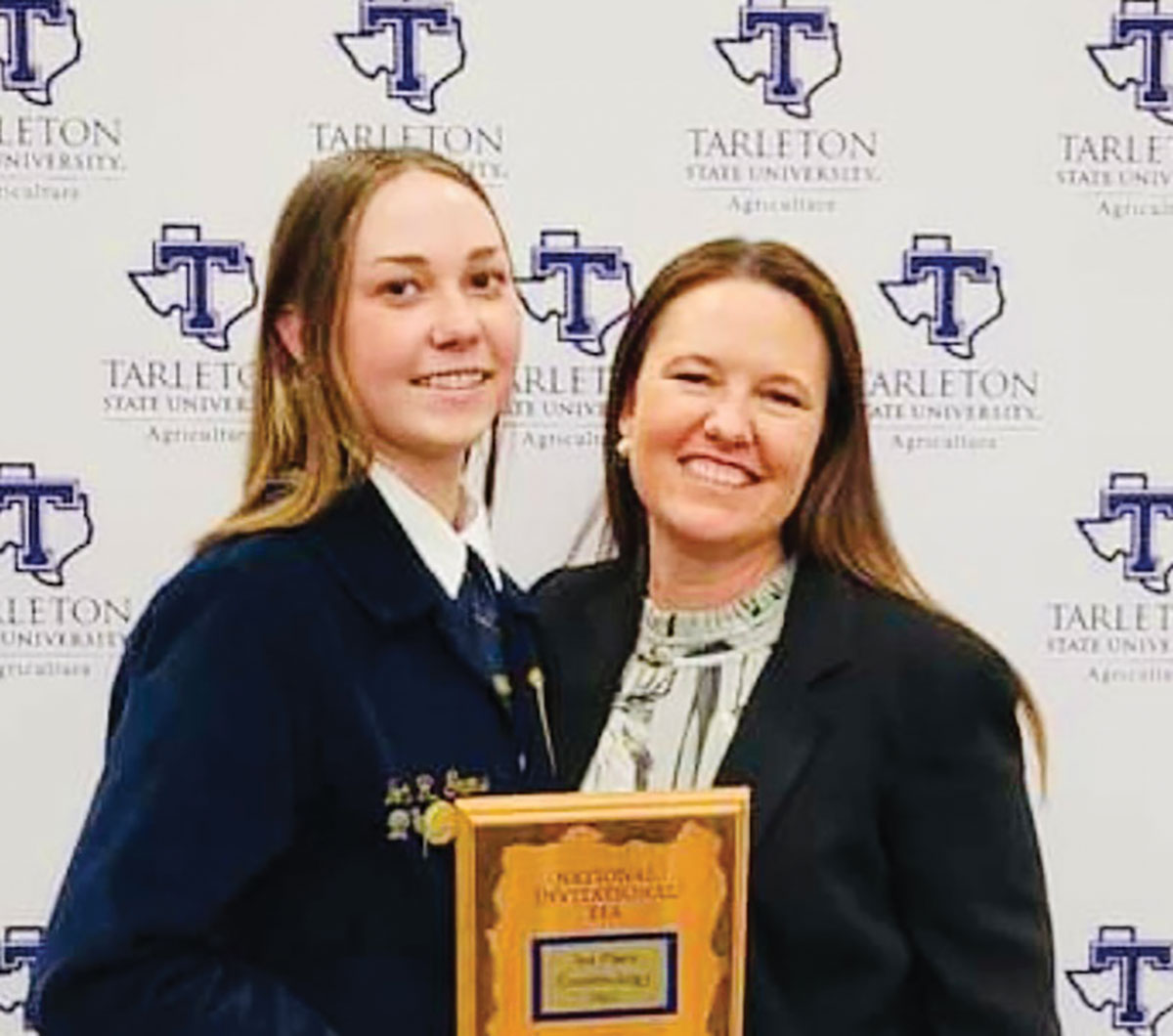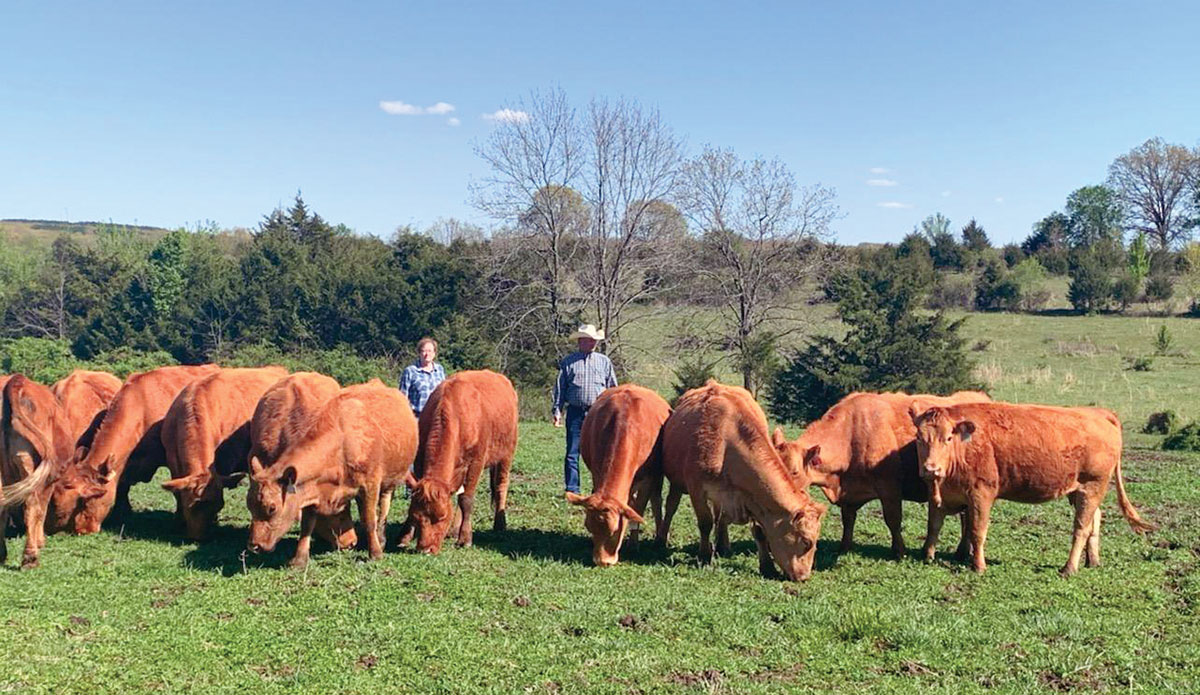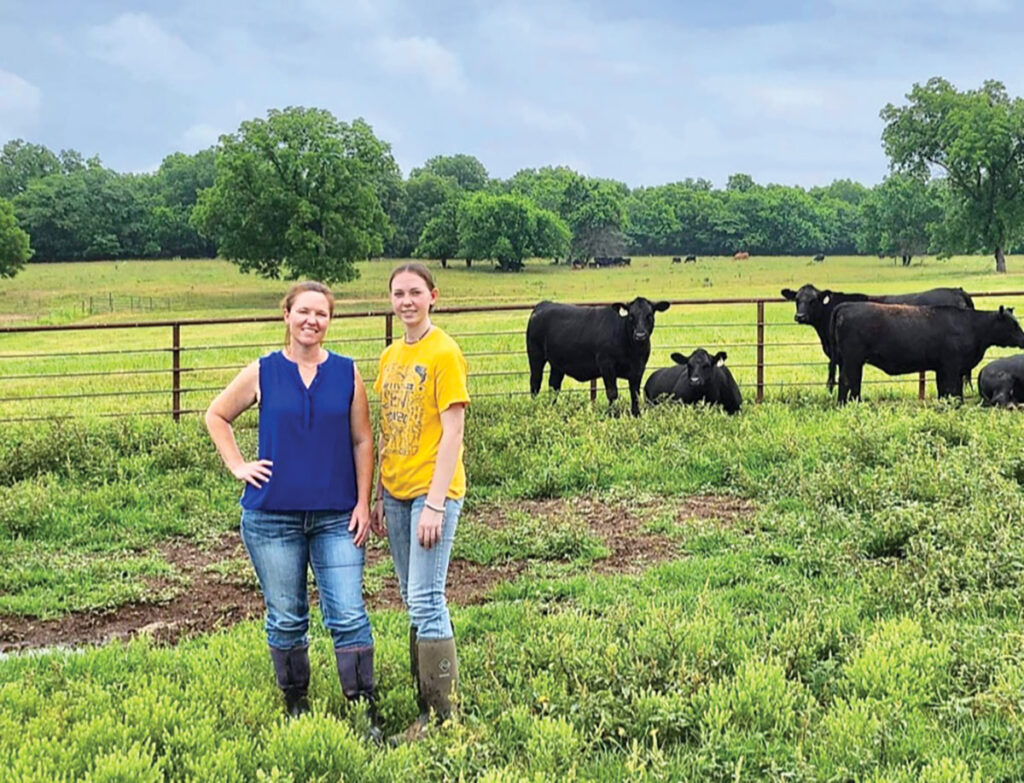
Casey Groose developed a love for agriculture at a young age
WALNUT GROVE, MO. – Seventh-generation cattlewoman Casey Groose recognized her love of agriculture riding in the cab of a tractor alongside her grandmother June Crussell-Richter while she worked in the hay fields of the family’s Walnut Grove, Mo., farm.
Casey has always been very passionate about farm life. When she married her husband, Ryan, he felt the same. The couple purchased their first farm just after they were married 19 years ago.
Casey’s grandmother, June Richter, left a rich legacy in agriculture.
June drove cattle down the center of Walnut Grove Main Street and out to their farm.
“The story goes, if June showed up in pants (women weren’t allowed to wear pants in those days), the ladies in Walnut Grove needed to take their wash off the clothesline. June road into town on horseback accompanied by several cowboys. She drove cattle that arrived at the local train depot out to their farm.”
“She was a huge influence on me. Her backbone, hard work, ethics, and perseverance, having grown up at the end of the depression, was immense.”
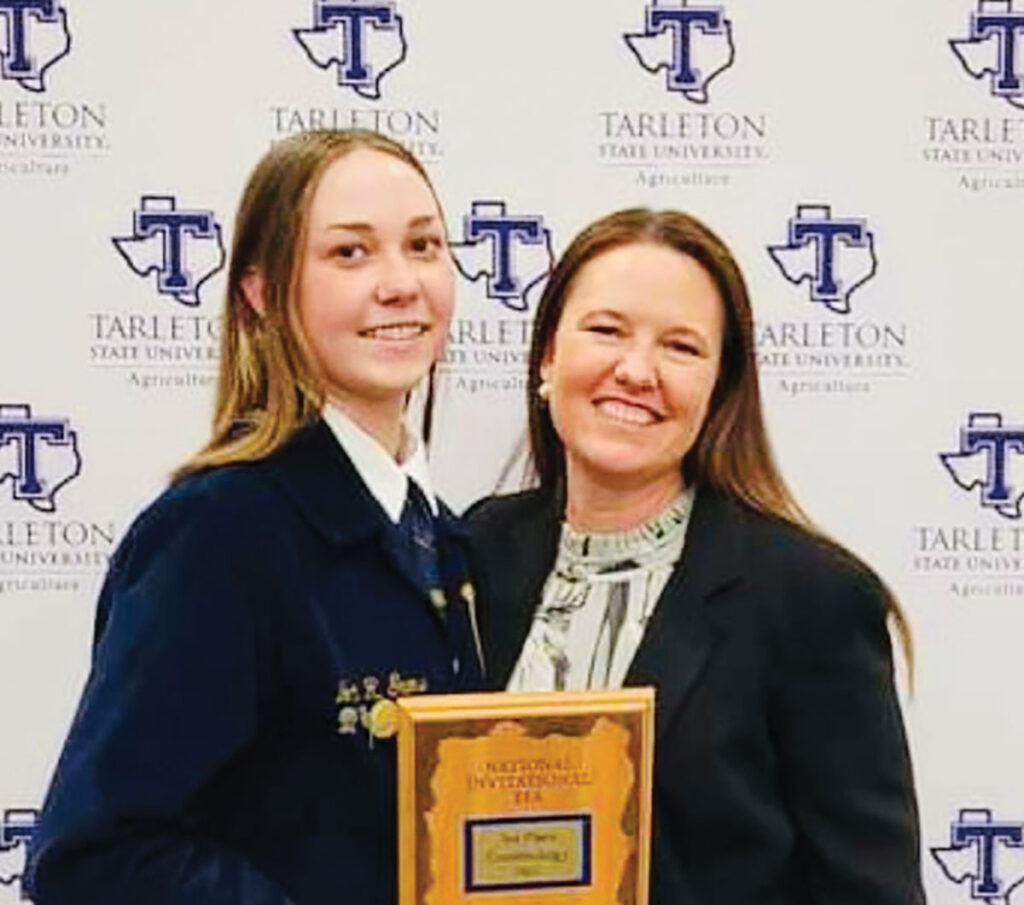
Ryan and Casey Groose own and operate Groose Farms. The livestock and crop operations are located near Dadeville, Mo. The Groose kids, Noah, Ben and Henry, also enjoy farm life.
“Our farm is big enough to keep us busy,” Casey said.
Ryan also works off the farm as a financial analyst in Springfield, Mo.
Casey grew up on her family’s farm in Walnut Grove, Mo.
“I milked cows for our neighbors during high school to save money for college,” Casey recalled. “I milked all through college as well. At the College of the Ozarks, you have to work on campus. My husband and I both worked on farms. They also have a meat processing plant where Ryan worked. We both got our ag business degrees there.”
“It’s quite the love story,” Casey noted. “Ryan was hauling manure when we met. I like to say he was a breath of fresh air. And the rest is history. We’ve been married for 19 years.”
Casey was an executive at the Boy Scouts of America in Springfield, Mo. When the couple began having kids, she gave up the position to stay home. To offset some of her income, they fed out hogs and sold freezer meat at local farmers markets.
“I’ll never forget from that time was going out to check on the hogs with a kid in a stroller, one on my back, and I was pregnant. Just to make sure that the waters were running. That was quite an ordeal. It all worked out for the best, though. It’s been good for us.”
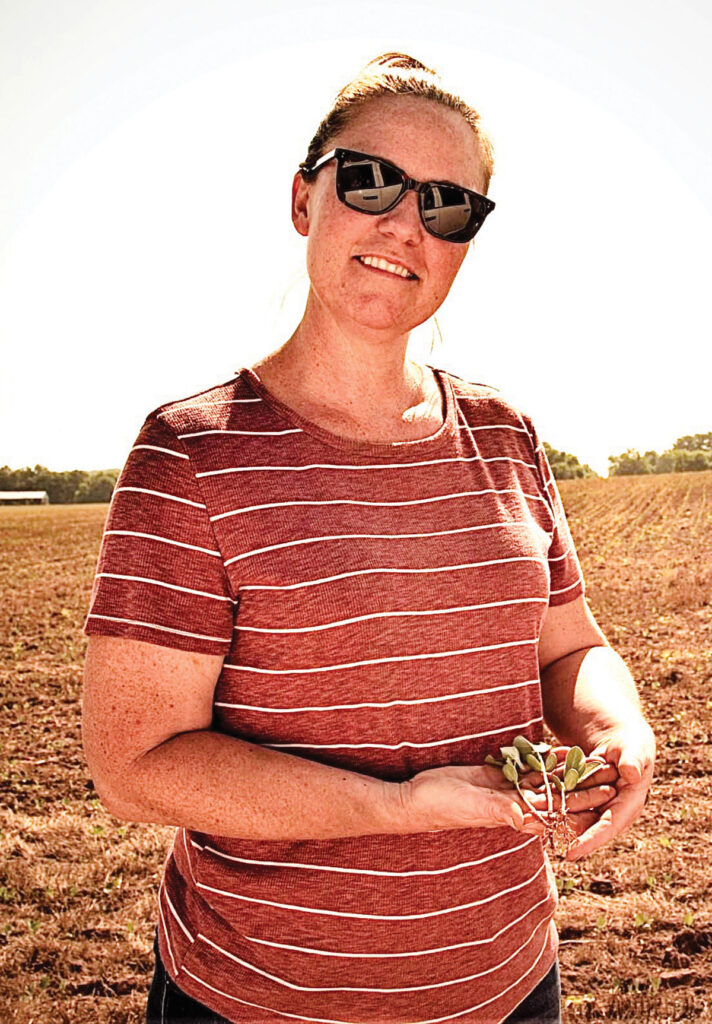
Developing bred heifers has been a part of the Groose livestock and crop operation for many years. They began to focus on genetics several years ago to add more value to their heifers, and using Worthington Angus genetics was a natural way to help make that transition. The Grooses take pride in marketing cattle that have been developed in alignment with such a quality program, and they enjoy being able to offer excellent replacement heifers to like-minded producers through the Worthington Angus spring and fall sales. Everyone in the family is well versed in developing high-quality replacement heifers, as each contributes in many ways to the families’ farming endeavors.
Groose Farms’ goal is cattle grade that USDA Prime or High Choice.
“Our daughter, Noah, gets involved when we have a heifer that doesn’t breed. She buys some of those from us. They are all pre-sold to people wanting half of a beef. She has a waitlist of people that buy from her. Noah’s goal is that her heifers grade USDA High Choice or Prime.”
All of the Groose kids are very involved in the farm. Their oldest son Ben planted a good portion of the 500-acre soybean crop. Henry helps as well. Other ways Casey and her kids help with planting are moving equipment from farm to farm, filling the planter, helping with repairs, and doing anything else they can to help Ryan keep the planter running. They also work cattle, keep an eye on animal health and care for things while Ryan works in town. Casey takes care of the bookwork as well.
The soybean crop is sold by forward contract, ensuring a certain family price point. It is then taken to St. Louis, loaded on barges, and sent down the Mississippi River to be delivered to China, where it is used as livestock feed.
“With the drought last year, we didn’t take our soybeans to St. Louis because the Mississippi River was so dry. We sold more locally.”
They also grow wheat for hay and feed.
“Our farms are scattered, so we drive from farm to farm, getting things done.”
Casey and Ryan purchased a grain bin last year, enabling them to store grain for a better price.
“The grain bin gives us more flexibility during harvest, as its dryer allows us to harvest at moisture levels that we previously couldn’t have. One of our issues is getting trucks out to the farm. The bin gives us a place to store beans until the trucks can get here.”
They grow fescue and maxcue in their pastures. They also utilize rotational grazing, which has improved the overall pasture health and provided weed control. They recently installed drain tile, which helps draw excess moisture out of the fields so they can get planted without getting stuck.
Future goals for the Groose family include encouraging their kids’ interest in agriculture. Casey is the seventh generation to farm her family’s land.

